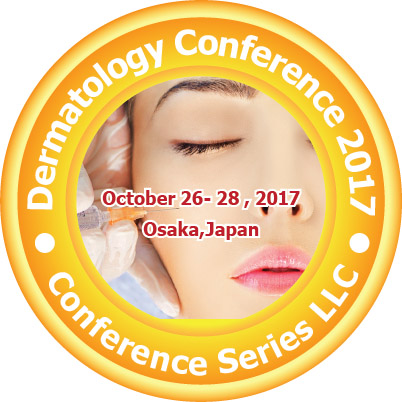
Chung-Ching Chu
Unilever, China
Title: Specific plant derived monoterpenes of thymol and terpineol act synergistically with cutaneous antimicrobial lipids to display potent efficacy against Propionibacterium acnes
Biography
Biography: Chung-Ching Chu
Abstract
Acne is a multifactorial skin condition that has long been associated with changes in bacteria colonization. Cutaneous lipids, including certain free fatty acids derived from human sebaceous triglycerides and free long-chain sphingoid bases released from stratum corneum ceramides are potent and broad-acting antimicrobials contributing to skin’s self-disinfecting property and host innate defense. Dysregulated expression of skin’s antimicrobial lipids has been reported in acne condition and may be implicated in microbial dysbiosis. Here we report that long-chain sphingoid bases including C18 sphingosine, C18 phytosphingosine and C18 sphinganine, as well as sapienic acids (C16:1D6), the dominant sebaceous antimicrobial fatty acids, displayed potent antimicrobial efficacy against Propionibacterium acnes. Combination of cutaneous antimicrobial lipids with the plant derived monoterpenes of thymol and terpineol demonstrated a synergistic anti-P. acnes efficacy. Both the C18 sphingoid bases and sapienic acids perturbed the integrity of microbial cell membrane; a mechanism of action resembles that of thymol and terpineol. In contrast, no direct antimicrobial synergy was observed between cutaneous antimicrobial lipids and the skin-acting acne control agents such as salicylic acids and 6-[3-(1-adamantyl)-4-methoxyphenyl]-2-naphthoic acid. Our results demonstrated a potential synergistic antimicrobial benefit of thymol and terpineol with skin surface lipids to manage P. acnes and thereby aid in acne control.

